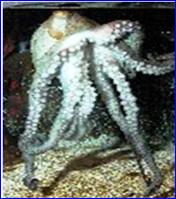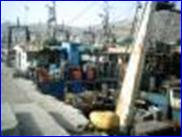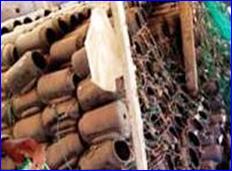OCTOPUS AND SQUID COMMERCIAL & INDUSTRIAL FISHING LICENSES

One of the key fishery resources in Mauritania is the cephalopod, in particular “octopus vulgaris”. Octopus resource is of a great concern to fishermen as each year as it accounts for about half of the country's fish exports. In 2004, the “Société Mauritanienne de Commercialisation du Poisson” (SMCP), the partly state owned Mauritanian fish trading company - which is responsible for marketing all frozen demersal fish and cephalopods landed by the national fleet - exported almost 40,000 tons of fish for a total value of 119 million euros. Octopus itself accounted for 51.2% of the total tonnage exported with a value of almost 98 million €uros, i.e. 82% of the total SMCP turnover.

In the early nineties, as small-scale octopus fishing fleet was undergoing a rapid expansion, a massive influx of boats of Chinese origin became part of a fleet renewal programe. This was performed despite the warnings provided by the National Centre of Oceanographic Research and Fisheries (CNROP ) and the FAO regarding the level of stocks and the fact that they could not cope with such a pressure. Today, most of the 125 boats constituting the national Mauritanian industrial fleet are these vessels from Chinese origin.
The arrival of cephalopod trawlers from the EU between 1994 and 1996 has accelerated the effect of the stocks depletion and loss of profitability. In 2004 the fleet of European cephalopod trawlers accounted for 33% of the turnover achieved under EU Mauritania fisheries agreements (compared to 38% for small pelagic fishing and 16% for shrimp fishing).Today, the IMROP estimates that there is an excessive capacity of 31% in the octopus fishery, which is the cause of a 20% loss in production. A committee of Mauritanian scientists found that the octopus stock had declined by 31% from historical average. The Mauritanian fisheries ministry recommended opposing any deal that permitted EU nations to fish for octopus, arguing that the species needed to recover. However, the EU negotiators offered to reduce from 53 to 43 the number of boats fishing the species, but not to limit the total of octopus caught.
Under the new EU-Mauritania agreement 43 licences for octopus fishing are planned for European trawlers. A brief comparison with the previous EU Mauritania agreement, shows during the first quarter of 2005, only 46 licences for octopus fishing had been actually used out of the 55 authorized within the previous agreement, as a result of the poor level of octopus resources. There is therefore a decrease from 46 licences to 43 licences, i.e. a reduction of 6.5%, but this modest reduction is not sufficient to support a 30% decrease in the European fishing effort on octopus that is officially announced. To be noted that the 1982 “United Nations Convention on the Law of the Sea” stipulates that a coastal country must only grant the surplus of its resources when not fished by its national fleet. A new rule defines the minimum weight for eviscerated (gutted) octopus fished in Mauritania as of 450 gr.CNROP is today known as IMROP – Mauritanian Institute of Oceanographic Research and Fisheries

In response to this situation, and to protect its demersal resources, the Mauritanian government has extended the offshore Exclusion Zone from 6 miles to 12, improved its surveillance capacities, and extended the no-fishing biological reproduction period from 30 to 60 days each year.
For Y2007, this biological rest period starts by the 15th of September and ends on the 15th of October (arrêté N° 1880/MPEM du 08/08/06).The Mauritanian octopus is overexploited and there is no more any surplus resource to offer foreign commercial fleets. Only ships registered in Mauritania can fish cephalopods Cephalopod commercial fishing belong to the “special fishing” category and calls for a dedicated license.


 - °
- °

